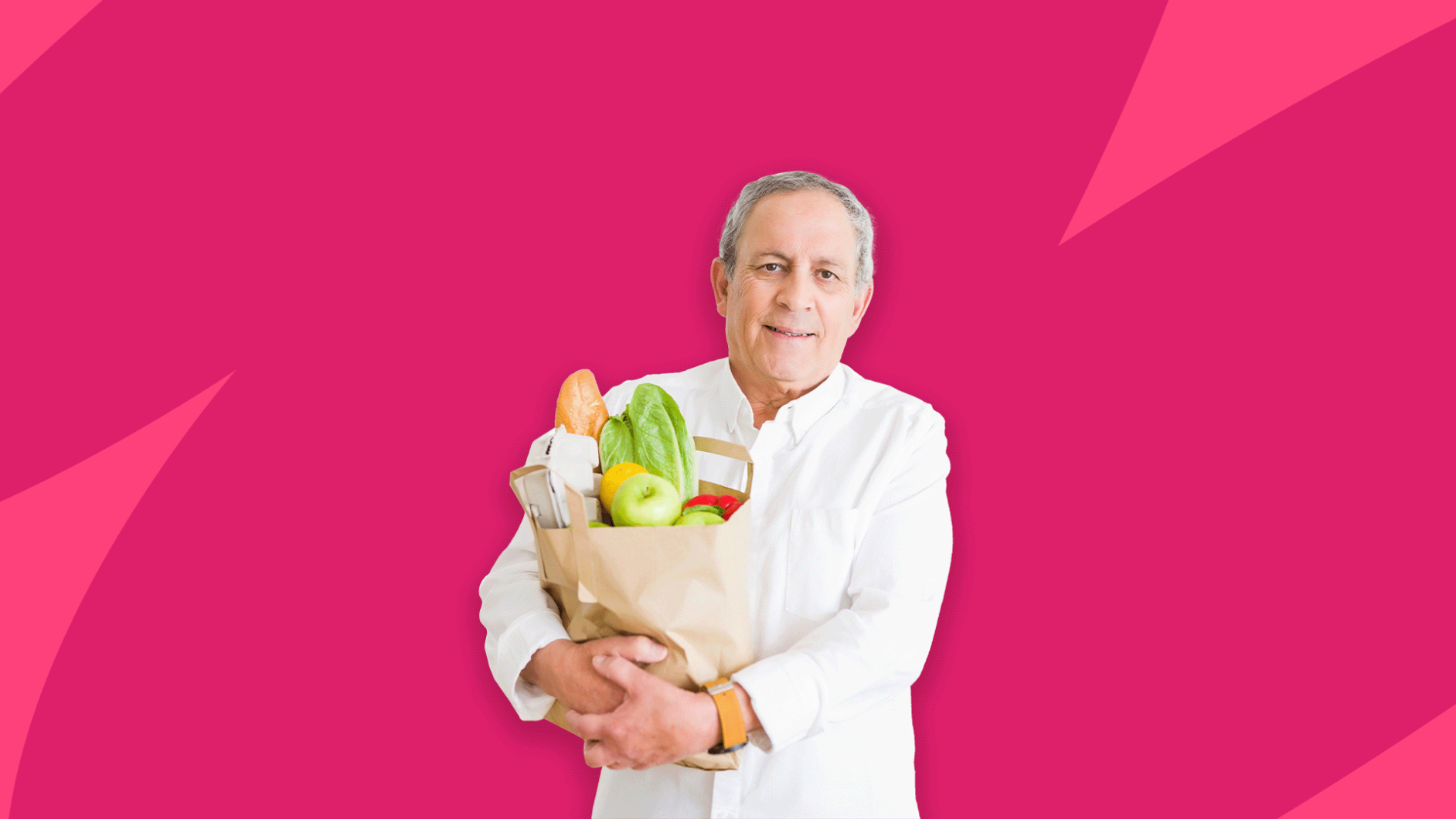Key takeaways
Eating bland foods like the BRAT diet (Bananas, Rice, Applesauce, Toast) can help soothe nausea by being gentle on the stomach.
Protein-rich foods that are bland and easy to digest, such as poached eggs and tofu, can be beneficial when feeling nauseous.
Hydrating with clear liquids and consuming hydrating foods like watermelon can help maintain fluid balance when nauseous.
To prevent worsening nausea, avoid greasy, spicy, or heavy foods, and opt for smaller, more frequent meals instead.
Nausea is an uneasiness in the stomach or an uncomfortable feeling in the back of the throat. Other symptoms like dizziness, lightheadedness, and trouble swallowing may accompany it. When you are experiencing symptoms of nausea, you may also vomit (throw up)—but nausea does not always lead to vomiting. Nausea may be associated with various illnesses, conditions, or treatments, such as:
- Cancer treatment (radiation or chemotherapy-induced nausea)
- Pregnancy (pregnant women may experience nausea and vomiting in the first trimester of pregnancy, which is referred to as morning sickness)
- Stomach infections (gastroenteritis or stomach bug)
- Food poisoning
- Migraine
- Motion sickness
- Traveler’s diarrhea
- Side effects of certain medications
What to eat when nauseous
Regardless of the cause, when you are nauseous, you may wonder what foods can make you feel better and what foods to eat if you are hungry. The good news is that there are plenty of options for foods and beverages that you can consume while nauseous. If you are actively vomiting, however, skip the solid foods and stick to sips of clear liquids, such as electrolyte beverages.
1. Bland foods
You may have heard of the BRAT diet, which stands for Bananas, Rice, Applesauce, and Toast. This is considered a bland food diet. Starchy foods that are low in fiber and bland make your stools more firm (and you’ll have fewer bowel movements). They also help replace nutrients, such as potassium from bananas. The main part of the BRAT diet has always been considered bananas, rice, applesauce, and toast, but you can add other bland foods and drinks, such as:
- Gelatin (Jell-o)
- Saltine crackers
- Plain pasta
- Plain potatoes
- White rice
- White bread
- Pretzels
- Vegetable or chicken broth or clear chicken soup
- Graham crackers
- Vanilla wafers
- Pudding
- Creamy peanut butter
- Fruit juice, such as apple juice
- Weak herbal teas, ginger tea, mint tea, or peppermint tea
2. Protein-rich foods
Bland protein-rich foods are also a good option if and when you can tolerate them. They are best prepared without spices. For example:
- Poached or hard-boiled eggs
- Tofu
- Cottage cheese
- Lean, skinless chicken, turkey, white fish, or shellfish (prepared by steaming, baking, or grilling without added fats)—these are easier on the digestive tract than red meat when you are nauseous.
3. Hydrating foods and beverages
Stay hydrated with foods and drinks like:
- Hot tea
- Soup broths
- Gelatin
- Popsicles
- Sports drinks like Gatorade
- Coconut water
- Flat ginger ale or other soda
- Fruits and vegetables with a high water content, such as watermelon, cucumbers, and pineapple
You can also try sucking on hard candy with pleasant smells, like lemon drops or any flavor you prefer and can tolerate.
4. Cool foods and beverages
Cool foods may be soothing on a nauseous tummy. Try things like:
- Nonfat yogurt
- Fruit juice
- Sherbet, ices, or popsicles
- Sports drinks like Gatorade
How to prevent nausea
Foods to avoid when nauseous
In addition to knowing what foods are better choices to consume while nauseous, it’s also good to know what foods are best avoided while you are not feeling well. These foods can worsen nausea symptoms.
Greasy foods
When you are nauseous, it is a good idea to stay away from greasy foods such as sausage, bacon, fried eggs, potato chips, french fries, home fries, hash browns, or anything that is breaded and/or fried.
Spicy or acidic foods and beverages
Avoid spicy foods such as salad dressings, pickles, orange juice, or other citrus fruits, pepper, chili powder, onion, hot sauce, or any different types of seasoning.
Heavy dairy products
Avoid full-fat dairy products such as milkshakes and regular ice cream (low-fat or fat-free dairy products are okay if you can tolerate them).
Heavy carbohydrates
Stay away from heavy, sweet carbs like muffins, pancakes, waffles, donuts, cake, and other pastries.
Alcohol and caffeine
Nauseous people should always avoid alcohol and caffeine. They can worsen symptoms and cause dehydration.
Other tips for treating nausea
Some other tips for treating nausea include:
- Eat regular, small meals or snacks throughout the day rather than larger meals. Do not mix hot foods with cold foods.
- Stay out of the kitchen, if possible, to avoid strong odors.
- Sip small amounts of clear liquids slowly throughout the day for an easy way to stay hydrated.
- Use plastic utensils, as metal ones may cause a bitter taste in the mouth.
- Sit upright and rest for at least one hour after eating. Avoid activity after eating.
- You can rinse your mouth with water before and after eating but do not brush your teeth after eating.
- Try to stay distracted with TV, a book, or music.
- Talk to your doctor for more information about possible treatment options, such as Zofran (ondansetron), if nausea is related to a condition such as pregnancy or cancer.
Sources
- Eating when you have nausea and vomiting, Breastcancer.org (2023)
- Managing nausea and vomiting at home, American Cancer Society (2020)
- Nausea or vomiting, Penn State College of Medicine (2023)
- Bland diet, StatPearls (2023)
- Bland diet, National Library of Medicine MedlinePlus (2022)
- Diet modifications for nausea and vomiting, UCSF Health (2023)
- BRAT diet: recovering from an upset stomach, American Academy of Family Physicians (2023)
- Nausea and vomiting, Cleveland Clinic (2023)



